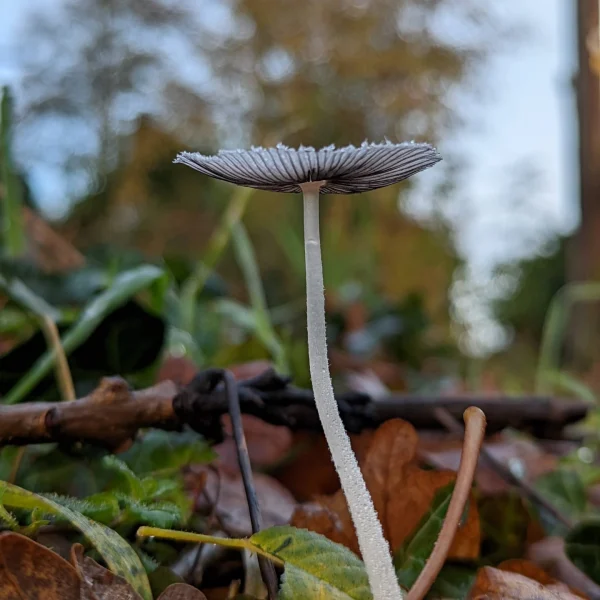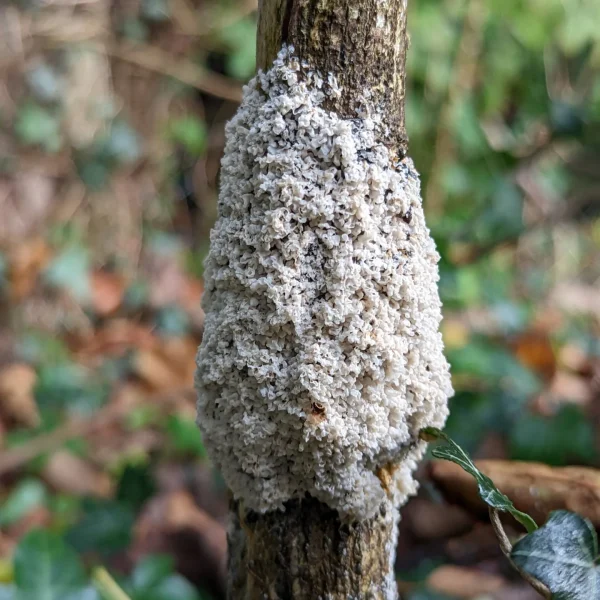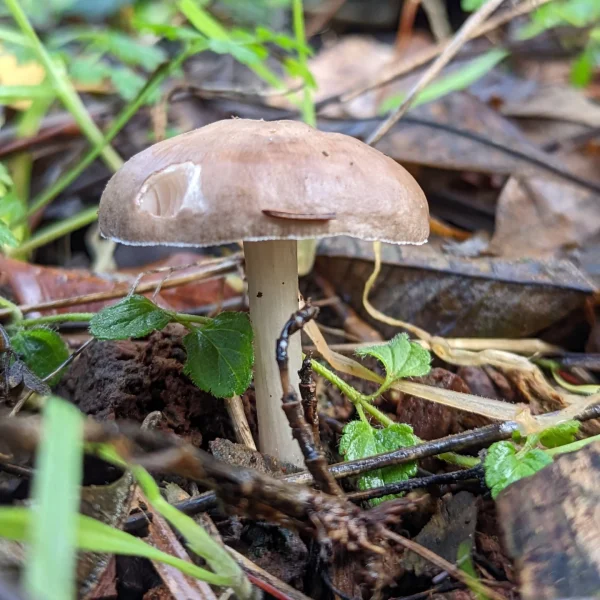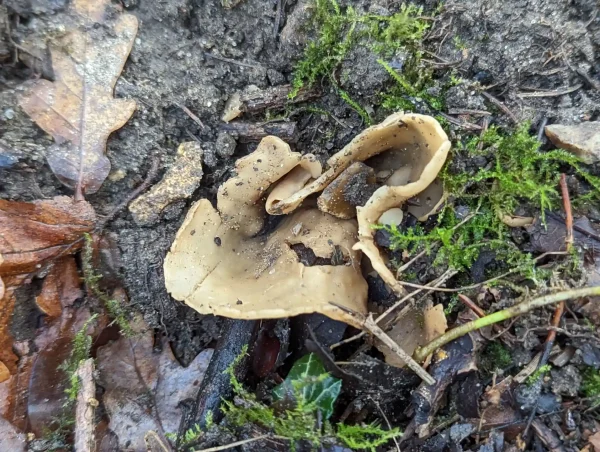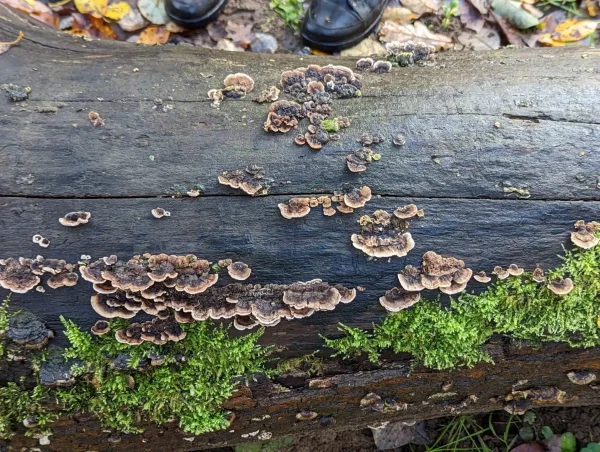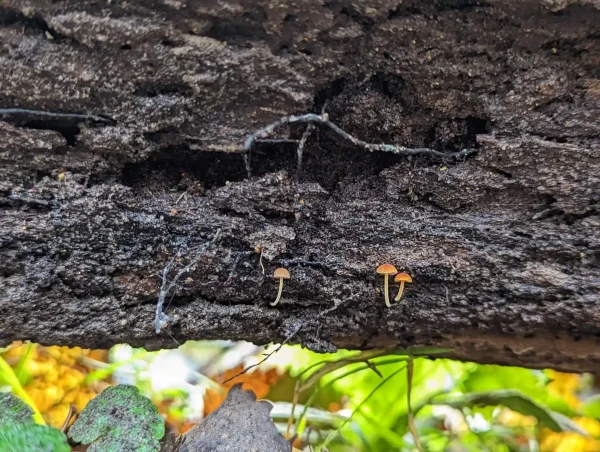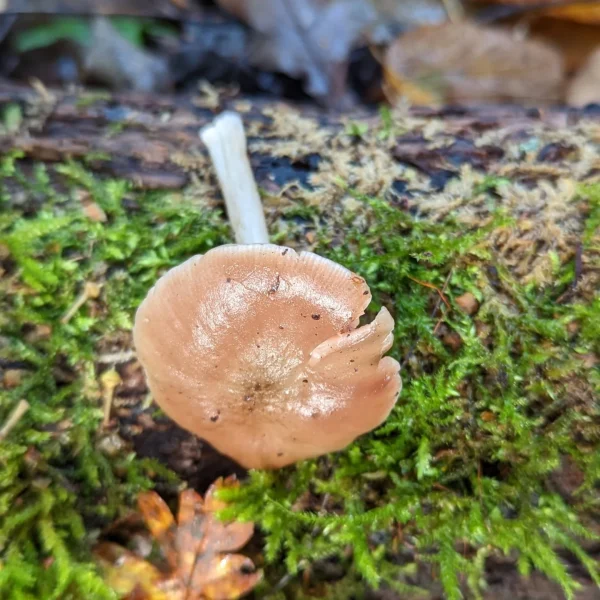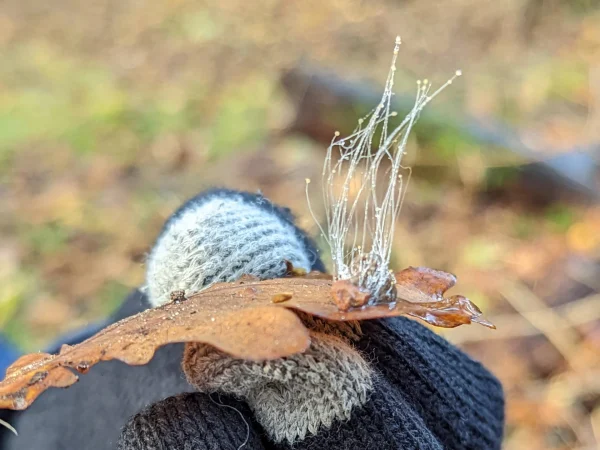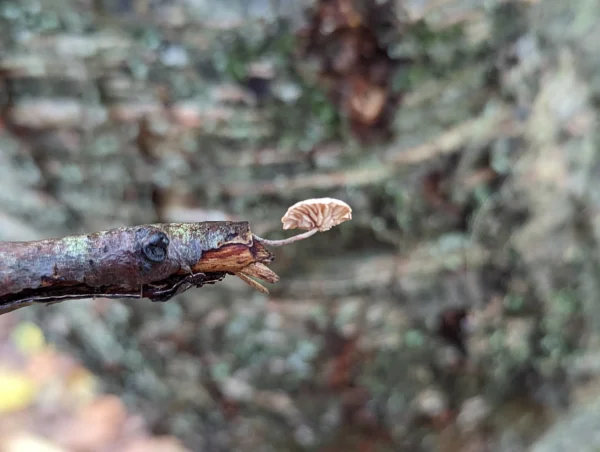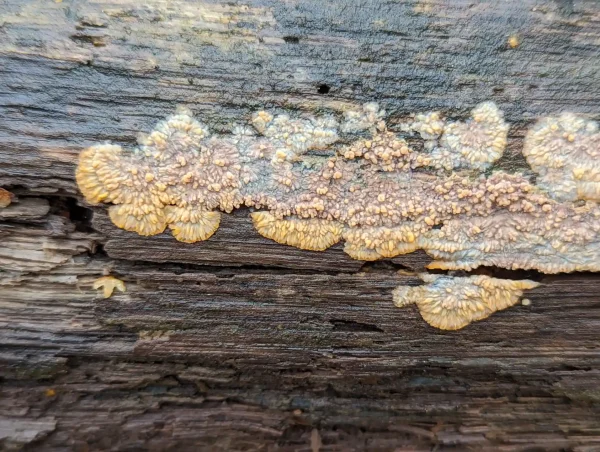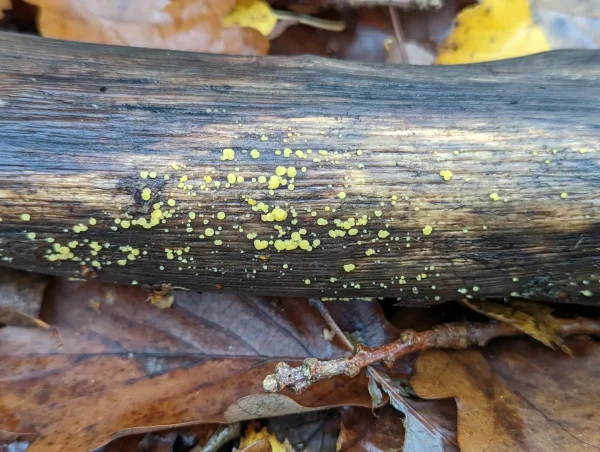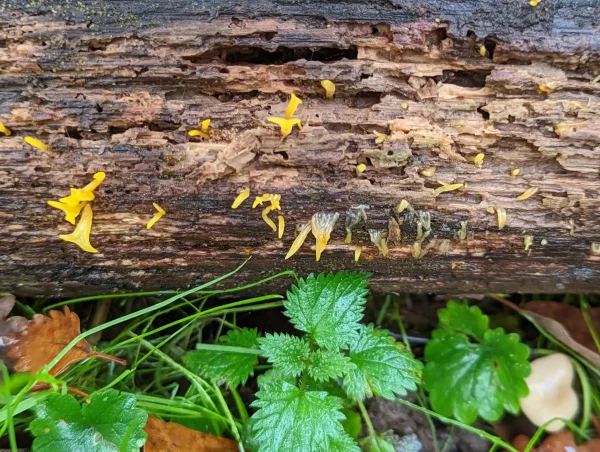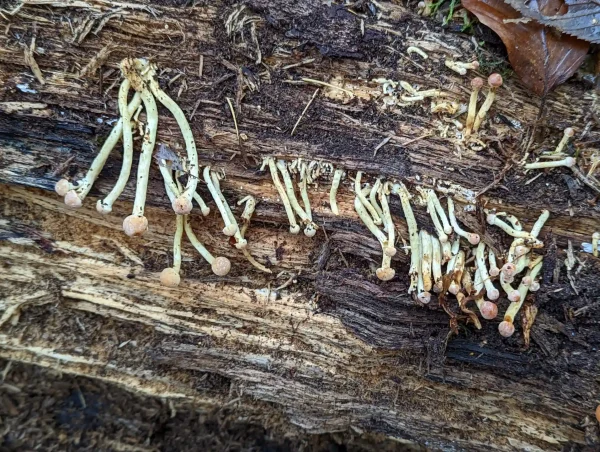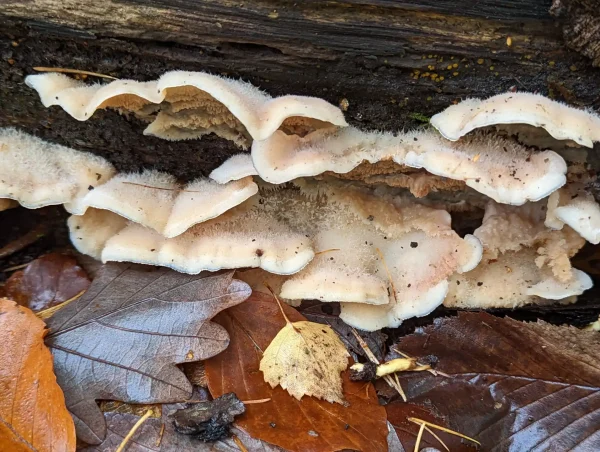Day 11
– 26 November 2022
Click on an image to see the fungus entry page
CAR PARK AND ENTRANCE YARD
In the main car park, the cluster of Coprinopsis atramentaria from week ten was wilted and disintegrating (Fig. 11.1).
Near the cluster were some Parasola conopilea (Fig. 11.2).
To the right in the grass I spotted a Coprinopsis lagopus (Fig. 11.0) and in the vegetation behind the cycle racks, at the base of a woody stem, I spotted Mucilago crustacea transitioning to it’s spore mass form (Figs. 11.1).
Along the woodland trail I saw an unidentified brown fungus (Fig. 11.3).
BASECAMP AREA
The remains of the Laccaria laccata troop were still there and I spotted a possible Peziza species (fig 11.4).
On the path to the railway line the Stereum hirsutum was still prolific over the Oak and I spotted some more Tremella aurantia.
At Basecamp, I saw Coprinellus micaceus, more Lachnum virgineum and some Trametes versicolor (Fig. 11.5).
On one of the large logs I saw the Daldinia concentrica from previous weeks, Xylaria hypoxylon and a few small Mycena acicula (Fig. 11.6).
THE DELL
In and around The Dell, I found various fungi “matted” onto decaying wood.
I also spotted an Entoloma species (Fig. 11.7), a pin mould on a small animal dropping (Fig. 11.8) and the Pterula subtulata from previous weeks.
There were lots of little brown fungi – one shown in Figure 11.9 – and Typhula juncea.
I spotted a Russula ochroleuca and as I was exiting The Dell.
ENCLOSED AREA
The sculpted log along the path was still populated with Bulgaria inquinans and in the Enclosed Area, I found Nectria cinnabarina.
OUTPOST AREA
Around the Outpost area, I found Phlebia radiata (Fig. 11.10), Calycina citrina (Fig. 11.11) and Calocera cornea (Fig. 11.12).
TRAIL END AREA
The Phleogena faginea on The Pensieve was still around and nearby I spotted a singular Typhula fistulosa and more Typhula juncea.
In the woodland area between the path and Station Road, I spotted a Hypholoma fasciculare group (Fig. 11.13) and the cream coloured Phlebia tremellosa (Fig. 11.14).
